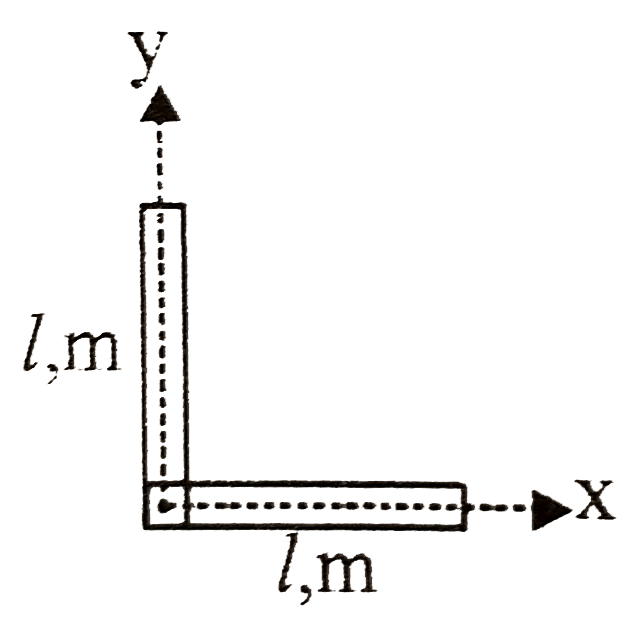What do you mean by centre of mass of a system? How it differs from the centre of gravity?
Step-by-Step Solution:
1. Definition of Centre of Mass:
The centre of mass (COM) of a system is defined as the point where the entire mass of the system can be considered to be concentrated. It is an imaginary point that represents the average position of all the mass in the system. When a force is applied at this point, the entire system will undergo translational motion without any rotation.
2. Understanding Translational Motion:
When a force is applied at the centre of mass, the system moves in a straight line (translational motion). For example, if you push a pen at its centre of mass, it will slide straight without rotating. This is because the force acts uniformly across the entire mass of the pen.
3. Definition of Centre of Gravity:
The centre of gravity (CG) is the point where the total weight of the body acts. It is the point at which the gravitational force can be considered to act. The centre of gravity is crucial for balancing objects; if you balance an object at its centre of gravity, it will not rotate.
4. Difference Between Centre of Mass and Centre of Gravity:
- Existence: The centre of mass exists regardless of any external forces, including gravity. It is a property of the mass distribution of the object. On the other hand, the centre of gravity only exists in the presence of a gravitational field. If there is no gravity, the concept of centre of gravity becomes irrelevant.
- Function: The centre of mass is used to determine the motion of the object when forces are applied, while the centre of gravity is used to analyze the stability and balance of the object under gravitational influence.
5. Conclusion:
In summary, the centre of mass is a point that facilitates translational motion of a system, while the centre of gravity is a point that helps in balancing the object under the influence of gravity. The two concepts are related but differ in their definitions and applications.
The centre of mass (COM) of a system is defined as the point where the entire mass of the system can be considered to be concentrated. It is an imaginary point that represents the average position of all the mass in the system. When a force is applied at this point, the entire system will undergo translational motion without any rotation.
When a force is applied at the centre of mass, the system moves in a straight line (translational motion). For example, if you push a pen at its centre of mass, it will slide straight without rotating. This is because the force acts uniformly across the entire mass of the pen.
The centre of gravity (CG) is the point where the total weight of the body acts. It is the point at which the gravitational force can be considered to act. The centre of gravity is crucial for balancing objects; if you balance an object at its centre of gravity, it will not rotate.
- Existence: The centre of mass exists regardless of any external forces, including gravity. It is a property of the mass distribution of the object. On the other hand, the centre of gravity only exists in the presence of a gravitational field. If there is no gravity, the concept of centre of gravity becomes irrelevant.
- Function: The centre of mass is used to determine the motion of the object when forces are applied, while the centre of gravity is used to analyze the stability and balance of the object under gravitational influence.
In summary, the centre of mass is a point that facilitates translational motion of a system, while the centre of gravity is a point that helps in balancing the object under the influence of gravity. The two concepts are related but differ in their definitions and applications.
Topper's Solved these Questions
- SYSTEMS OF PARTICLES AND ROTATIONAL MOTIONBook:MODERN PUBLICATIONChapter:SYSTEMS OF PARTICLES AND ROTATIONAL MOTIONExercise:REVISION EXERCISES (Long Answer Questions Carrying 5 marks)
Explore 8 Videos
- SYSTEMS OF PARTICLES AND ROTATIONAL MOTIONBook:MODERN PUBLICATIONChapter:SYSTEMS OF PARTICLES AND ROTATIONAL MOTIONExercise:REVISION EXERCISES (Numerical Problems)
Explore 20 Videos
- SYSTEMS OF PARTICLES AND ROTATIONAL MOTIONBook:MODERN PUBLICATIONChapter:SYSTEMS OF PARTICLES AND ROTATIONAL MOTIONExercise:REVISION EXERCISES (Fill in the Blanks Carrying 1 mark )
Explore 9 Videos
- PHYSICAL WORLD Book:MODERN PUBLICATIONChapter:PHYSICAL WORLD Exercise:Revision exercises (Long answer questions)
Explore 6 Videos
- THERMAL PROPERTIES OF MATTERBook:MODERN PUBLICATIONChapter:THERMAL PROPERTIES OF MATTERExercise:CHAPTER PRACTICE TEST
Explore 15 Videos
Similar Questions
Knowledge Check
The centre of mass of a system of particles does not depend on
AMasses of the particlesBForces on the particles,CPosition of the particlesDRelative distance between the particles.The centre of mass of a system of particles does not depend on
Amasses of the particlesBforces acting on the particlesCposition of the particlesDrelative distances between the particles
Calculate centre of mass of the system

View SolutionWhat do you mean by the list system?
View SolutionWhat do you mean by election system?
View SolutionWhat do you mean by pasteurisation of milk? How it differs from homogenisation?
View SolutionWhat do you mean by poles of a magnet? How are they different from the other regions of a magnet?
View SolutionWhat do you mean by the endocrine system?
View Solution